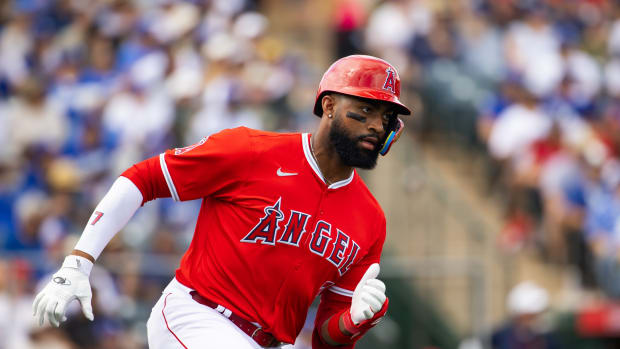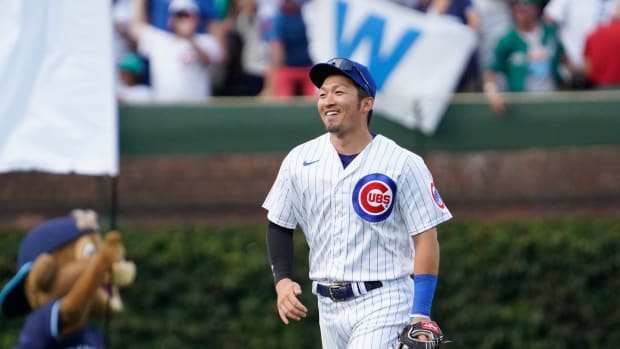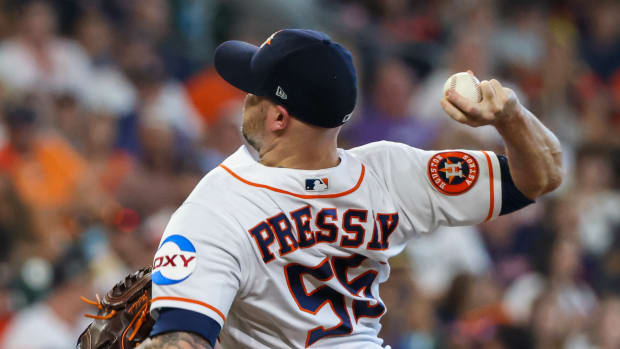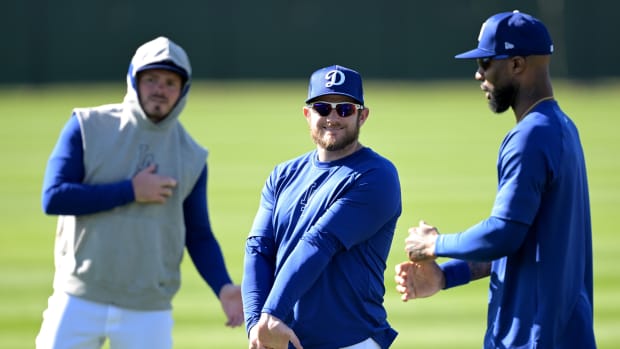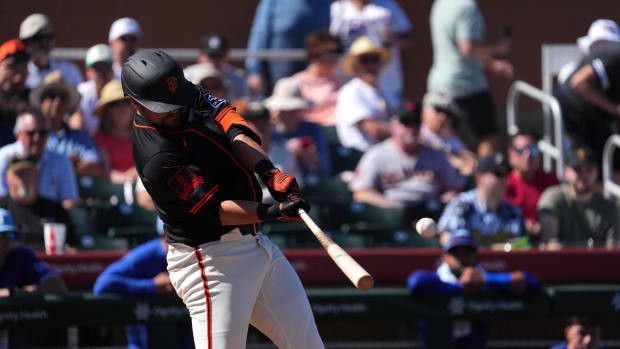David Price Finds Himself in Boston as Red Sox Relief Ace
BOSTON—In hindsight, David Price should probably not have taken the money. It’s hard to blame him for doing it: Not a lot of people would say no if the Red Sox offered them $217 million over seven years, the largest outlay for a pitcher in history. He had had success in the friendly markets of Tampa and Detroit and Toronto, and the Cardinals and Cubs both wanted him, but their proposals reportedly came up more than $30 million short. So the lefty went to Boston before last season, and the inferno began.
He took a 5.11 ERA into June of his first year. The famously unforgiving Fenway fans gave him feedback at the ballpark and on Twitter. He did little to bolster his reputation as a pitcher who froze in the postseason, allowing five runs in 3 1/3 innings in his only postseason start last year as the Red Sox were swept out of the ALDS. He grew sullen and withdrawn with the media. In spring training this season, he was diagnosed with a left-elbow strain. He stopped meeting with reporters following his rehab starts, then once he returned, initiated public feuds with a writer and with one of the team’s broadcasters. When asked if he enjoyed Boston, he said, “I love my teammates.” By this fall, the feeling from the city was mutual.
And then there he was Sunday during Game 3 of the ALDS, stalking off the field to a standing ovation at Fenway Park, having shut down the Astros when his team needed it most.
“The story of this one is David Price, clearly,” said manager John Farrell after the 10–3 victory was done.
This series has provided a vivid contrast between two front-office styles: the big spenders and the rebuilders. Red Sox president Dave Dombrowski, who got his start as a 22-year-old secretary in the White Sox’ front office, turned a top-three farm system into a middle-of-the-road one by cashing in on prospects for ace Chris Sale and closer Craig Kimbrel. He threw that $217 million at Price. Only 17% of the Red Sox’ $190 million payroll is devoted to players they acquired through the draft or international free agency. Astros GM Jeff Luhnow, on the other hand, a former McKinsey consultant, has clung to his young talent, preferring to let the team bottom out and reap the high-draft-pick benefits. Even when he finally traded for his own imported ace, righthander Justin Verlander, in August and on the cheap, he admitted, “The math does not support these types of deals.”
Yankees Edge Indians in Game 3 Pitchers' Duel to Keep Season Alive
Until Sunday, the rebuilders were thrashing the big spenders. It was clear to everyone going into the series that the Astros were the better team, but perhaps not this much better. Sale allowed back-to-back home runs (to third baseman Alex Bregman, the second pick in the 2015 draft; and second baseman José Altuve, whom Houston signed out of Venezuela as a teenager) in the first inning of Game 1. Boston DH Hanley Ramírez, another big-ticket free agent, didn’t even make the starting lineup. Boston lost 8–2. Drew Pomeranz—picked up last year for a top-20 prospect—lasted two innings in Game 2. Boston lost 8–2. “They’ve done everything right,” lamented Red Sox second baseman Dustin Pedroia, “And we haven’t done anything right.”
Ramírez took the field holding a BELIEVE IN BOSTON flag during introductions before Game 3. And for a few minutes, the fans seemed to. Then starter Doug Fister allowed three runs while recording four outs, and the atmosphere turned positively funereal. Even when the Red Sox drew within one, they seemed only to be postponing the inevitable. Then baby-faced third baseman Rafael Devers turned on hanging slider and sent it into the rightfield stands for the Red Sox’ first lead of the series. That immediately presented Boston with a new problem: how to hold a lead.
On came Price, the accidental reliever who only occupies that role because he returned from elbow inflammation too late in the season to build his stamina. He had been quietly brilliant out of the bullpen since he made the switch in September—in 9 1/3 innings, he had yet to allow a run—but that was not the image of him Red Sox fans held. They did not see him tell Farrell before the game that he felt he could throw as many as 80 pitches. They did not see him in the dugout, walking past the coaches after every inning and saying just, “I got this.” They did not see him after the game, insisting even as Farrell announced he would get a day off that he could be ready to go again tomorrow.
By the time he departed, at the end of the seventh, having scattered four hits in four innings, he had begun to change minds. Through all the Sturm und Drang his teammates had rallied around him, lauding his leadership and loyalty, and even as he relinquished the mound, he roared at his final victim, Astros leftfielder Marwin González, because he believed the batter had tried to interfere with the catcher. But González may have been the only one could hear what Price said over the roar of the crowd.
Such deep wounds will not heal immediately. After the game Price dodged two questions about whether he had enjoyed the fans’ reaction, saying only, “Yeah, that was a good performance.” But the team believes this temporary transition to relief has unlocked the man it valued so highly only two years ago.
“I think for some guys unintentionally it can be a very freeing experience,” says assistant pitching coach Brian Bannister. “There’s no strategy, there’s no energy conservation. I think with what he’s gone through this year, it’s just a good fit for him right now and he’s thriving.”
How Max Scherzer's Arrival Eased the Pressure on Stephen Strasburg and the Nationals
They all did on Sunday. First baseman Mitch Moreland, another free-agent import, had three hits. Ramírez went 4-for-4 and drove in four runs. The non-Price relievers combined for 3 2/3 scoreless innings. In the clubhouse after the game, the players seemed to breathe more deeply. After two disheartening performances, the Red Sox finally felt cleansed.
Even with a pair of teams that appear to be mismatched, the margins are minuscule. Rightfielder Mookie Betts stretched into the stands to steal a would-be three-run shot from his Astros counterpart, Josh Reddick, in the second; five innings later, Reddick got a glove on a Jackie Bradley Jr. drive to almost the same spot but let it bounce into the seats. That swing was six runs, nearly the margin of victory.
And in some ways that offers hope for the Red Sox. The Astros are still the better team, just as they were Saturday. But the playoffs do not only measure better. They measure hotter, and luckier, and any number of other tiny differentiators. If Price has truly found himself again, if Ramírez can carry the lineup, if their hits can travel an extra inch while their opponents’ fall just short … maybe there is reason to believe in Boston.































